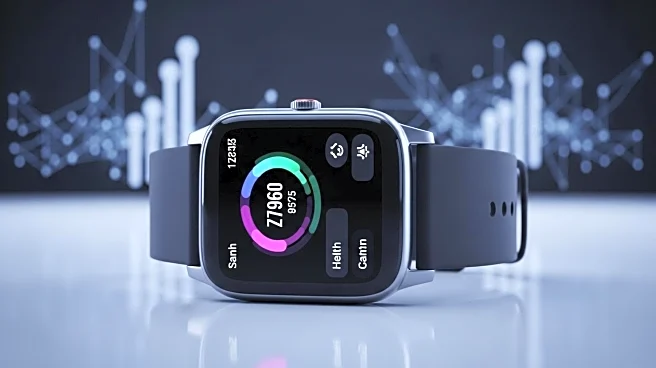What's Happening?
The global wearable band market is experiencing significant growth, with a record 50.2 million devices shipped in Q2 2025, marking a 13% increase from the same quarter last year. According to Omdia research, the market is forecasted to grow by 8% in 2025 and a further 9% in 2026. The surge is largely driven by consumer interest in health, fitness, and sports, with smartwatches playing a pivotal role in this expansion. Innovations in wearable technology are enabling the market to expand into medical and clinical sectors, further fueling growth. Despite fierce competition and unpredictable upgrade cycles, vendors are expanding their offerings to support revenue and profit growth.
Why It's Important?
The growth in the wearable band market signifies a shift in consumer priorities towards health and fitness, which is influencing the technology sector. As smartwatches become a core interface for health and wellness apps, they are expected to drive further expansion into medical markets. This trend presents opportunities for vendors to tap into subscription revenues through value-added services and connectivity subscriptions. The market's expansion could lead to increased competition among tech companies, potentially driving innovation and offering consumers more advanced health monitoring capabilities.
What's Next?
Vendors are likely to focus on encouraging consumers to upgrade their devices by offering new features and functionalities. The expansion into medical and clinical markets could lead to partnerships with healthcare providers, enhancing the utility of wearable bands. As the market surpasses $40 billion by the end of 2025, companies may explore new use-cases to attract diverse audience groups and evolve their business models.
Beyond the Headlines
The wearable band market's growth could have ethical implications, particularly concerning data privacy and the use of health data. As devices become more integrated into medical and clinical settings, ensuring the security and confidentiality of user data will be crucial. Additionally, the trend towards health-focused technology may influence cultural attitudes towards personal health management and preventive care.









